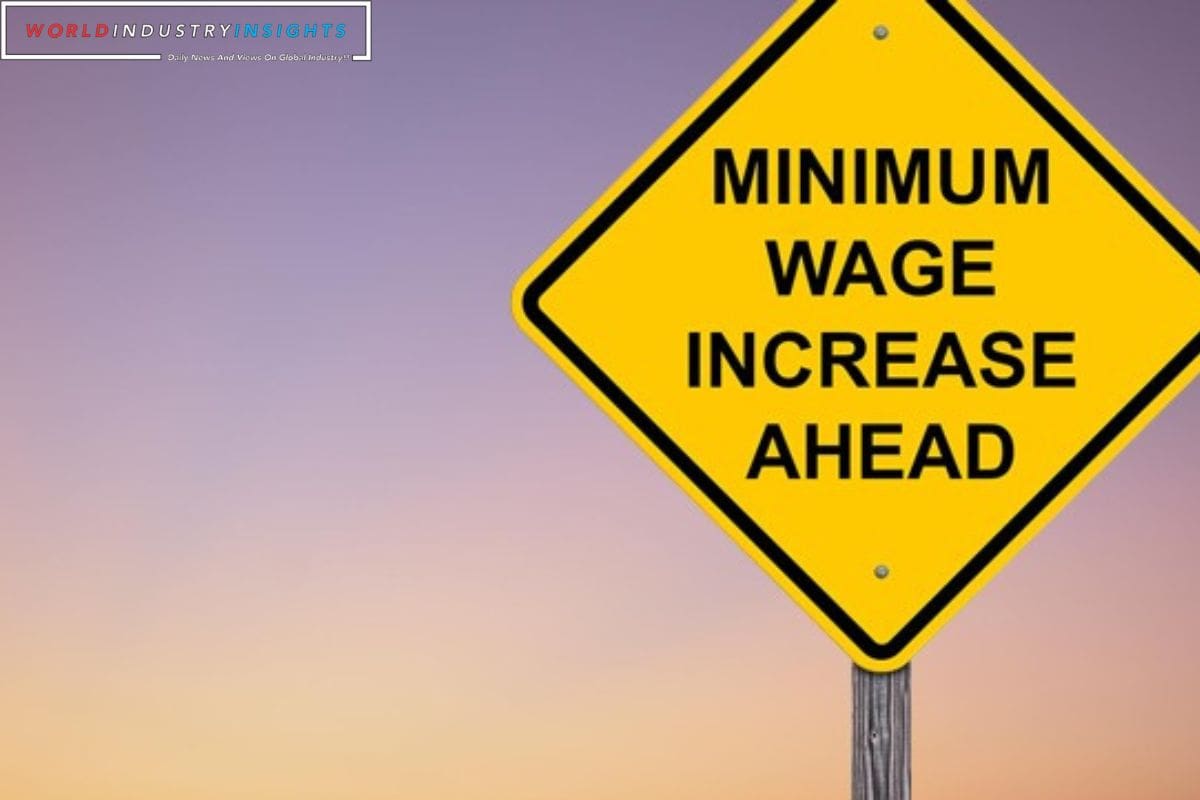Arizona Takes the Lead: In the realm of labor policies, Arizona has made a notable move by implementing a minimum wage hike that has sparked both praise and concern. As the state takes the lead in this progressive measure, businesses and workers alike are grappling with the implications of this change.
While some argue that a gradual increase in wages will promote economic growth and provide a better quality of life for employees, others worry about the potential strain it could place on businesses, particularly smaller ones.
The impact of Arizona’s minimum wage hike is far-reaching and multifaceted, prompting a closer examination of its effects on both businesses and workers in the state.
Key Takeaways
- Arizona implemented a minimum wage increase from $13.85 to $14.35 as of January 1, 2024.
- The decision to raise the minimum wage was driven by the recognition of the rising cost of living.
- Managers, like Josue Rivera of La Indita, support the gradual wage increase as it can improve the financial situation of employees and reduce turnover rates.
- Arizona’s approach to increasing the minimum wage is focused on gradual increments over time, allowing businesses to plan and adapt accordingly while workers benefit from a steady and predictable increase in their wages.
Arizona Implements Minimum Wage Increase
Arizona has recently implemented a minimum wage increase from $13.85 to $14.35 as of January 1, 2024. This move has significant implications for both businesses and workers in the state.
The decision to raise the minimum wage was driven by the recognition of the rising cost of living and the need to provide workers with a fair wage. The increase aims to alleviate some of the economic challenges faced by workers and ensure that they can meet their basic needs.

Also Read: Arizona chip production: Inside TSMC’s Hiring Dilemma
Local businesses, such as La Indita, are adjusting to this change and acknowledging the necessity of the raise. The implementation of the higher minimum wage in Arizona reflects a proactive approach towards addressing income inequality and promoting economic stability for workers.
Manager’s Perspective: Support for Gradual Wage Increase
Recognizing the impact of the recent minimum wage increase, managers like Josue Rivera of La Indita are expressing support for the gradual wage increase and its potential benefits in the current job market climate. Rivera believes that the 50-cent raise is well-deserved, considering the challenges faced by workers in the industry.
He hopes that the wage increase will not only improve the financial situation of employees but also contribute to reducing turnover rates. However, Rivera is also aware of the impact on operational costs and the need for adjustments in prices. To convey a deeper meaning for the audience, the following table outlines the potential benefits and challenges of the gradual wage increase:
| Potential Benefits | Challenges |
|---|---|
| Improved financial situation for employees | Increased operational costs |
| Reduced turnover rates | Adjustment in prices |
| Enhanced job market competitiveness | Potential impact on profitability |
Arizona’s Gradual Approach to Minimum Wage
Arizona’s approach to increasing the minimum wage is focused on gradual increments over time. The state plans to continue this gradual increase, with the goal of reaching a $15 minimum wage by 2025.
This approach is supported by Josue Rivera, who believes that avoiding sudden and dramatic jumps in wages is crucial. By implementing a gradual increase, Arizona aims to make the adjustment more manageable for businesses and prevent potential negative impacts.

This gradual approach allows businesses to plan and adapt accordingly, minimizing disruptions and ensuring a smoother transition. It also provides workers with a steady and predictable increase in their wages, allowing them to better plan their finances.
Arizona’s commitment to a gradual approach reflects a careful and considerate strategy towards improving the minimum wage.
Minimum Wage Increases in 24 States
In response to economic realities and the need to improve the financial well-being of workers, 24 states across the United States are implementing minimum wage increases. This reflects a nationwide trend where states are taking action to address the growing income inequality and rising cost of living.
These minimum wage increases aim to ensure that workers receive fair compensation for their labor and can meet their basic needs. The impact of these changes is significant, as nearly 10 million workers across the country will be affected. By raising the minimum wage, states are striving to create a more equitable economy and provide workers with a better quality of life.
This shift is an important step towards reducing poverty and promoting economic stability for all Americans.
Economic Policy Institute’s Insights on National Minimum Wage Landscape
With the implementation of higher minimum wages in 22 states on January 1, 2024, the Economic Policy Institute (EPI) sheds light on the national minimum wage landscape and its potential impact on income disparities.

The EPI highlights several key insights:
- Nearly 10 million workers will be affected by the higher minimum wages, providing an estimated $7 billion in additional annual wages.
- The disparities between state and federal minimum wages reveal varying progress across the nation, with some states taking the lead in addressing income inequality.
- Vulnerable workers, particularly women and people of color, stand to benefit from these minimum wage increases, as they are more likely to be employed in low-wage sectors.
These insights from the EPI offer valuable information for understanding the current state of the national minimum wage landscape and its potential effects on income disparities.
Conclusion Of Arizona Takes the Lead
The gradual increase in minimum wage implemented by Arizona and several other states reflects a growing trend towards addressing income inequality and improving working conditions for low-wage workers.
While there are concerns about the impact on businesses, many managers support this approach as it allows for adjustments and planning.
The insights provided by the Economic Policy Institute highlight the need for a national discussion on minimum wage policies to ensure fair compensation for all workers.

